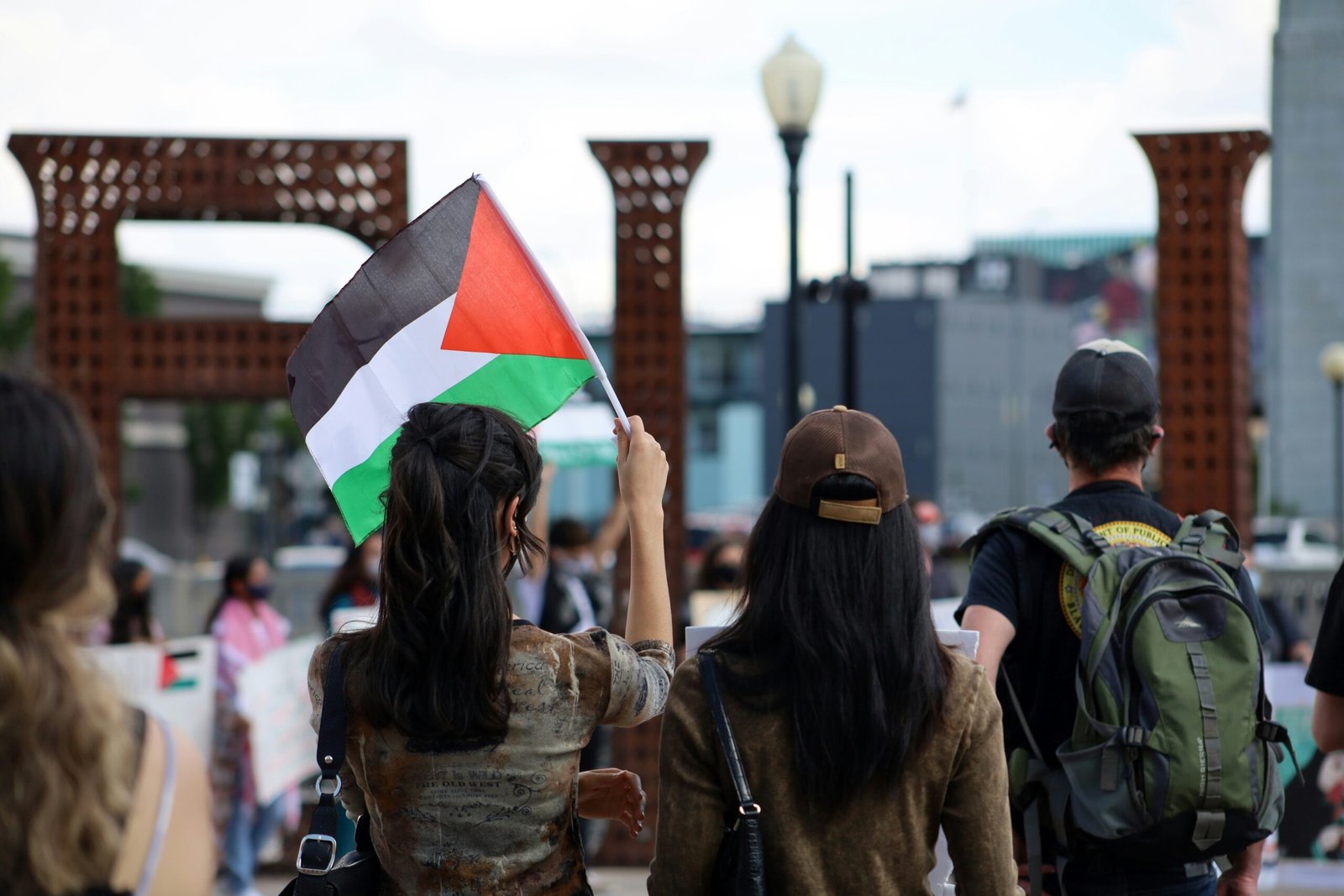Hundreds of Police Respond to Pro-Palestinian Protest Camp at UCLA
On a tense day at the University of California, Los Angeles (UCLA), hundreds of police officers were called in to respond to a pro-Palestinian protest camp. The previous day had seen violent clashes between protesters and counter-protesters, leading to concerns about the potential for further unrest.
The Background
The pro-Palestinian protest camp was set up by a group of students and activists who were expressing their solidarity with the Palestinian people amidst the ongoing conflict in the Middle East. The camp aimed to raise awareness about the situation and advocate for justice and peace.
However, tensions escalated when a group of counter-protesters arrived, expressing their support for Israel. The clash between the two groups turned violent, with reports of physical altercations and property damage. The situation quickly spiraled out of control, prompting the university administration to take action.
Police Response
Given the escalating violence and the potential threat to public safety, law enforcement authorities decided to intervene. Hundreds of police officers from various agencies were deployed to the UCLA campus to restore order and ensure the safety of all individuals involved.
The police officers, dressed in riot gear, formed a line near the protest camp, separating the pro-Palestinian and pro-Israeli groups. Their presence was aimed at preventing any further clashes and maintaining a peaceful environment on campus.
The police officers conducted thorough checks of the area to ensure the safety of everyone present. They also monitored the situation closely to promptly respond to any signs of violence or unrest.
Reactions and Implications
The heavy police presence at UCLA sparked mixed reactions from the students, faculty, and the wider community. Some individuals appreciated the efforts to maintain peace and prevent further violence. They believed that the police response was necessary to protect the safety and well-being of everyone on campus.
However, others criticized the police presence, arguing that it stifled free speech and peaceful protest. They expressed concerns about the potential for excessive use of force or intimidation tactics by law enforcement officers.
Regardless of differing opinions, the incident at UCLA highlighted the deep-rooted tensions surrounding the Israeli-Palestinian conflict. It also underscored the challenges faced by universities in managing and balancing the right to free expression with the need for safety and security.
Conclusion
The incident at UCLA, where hundreds of police officers were deployed near a pro-Palestinian protest camp, serves as a reminder of the complex nature of political demonstrations on college campuses. While it is essential to uphold the right to free speech, it is equally important to ensure the safety and well-being of all individuals involved.
As universities navigate these challenges, open dialogue, understanding, and respect for diverse perspectives are crucial. Only through peaceful and constructive conversations can progress be made towards a peaceful resolution of the Israeli-Palestinian conflict.
